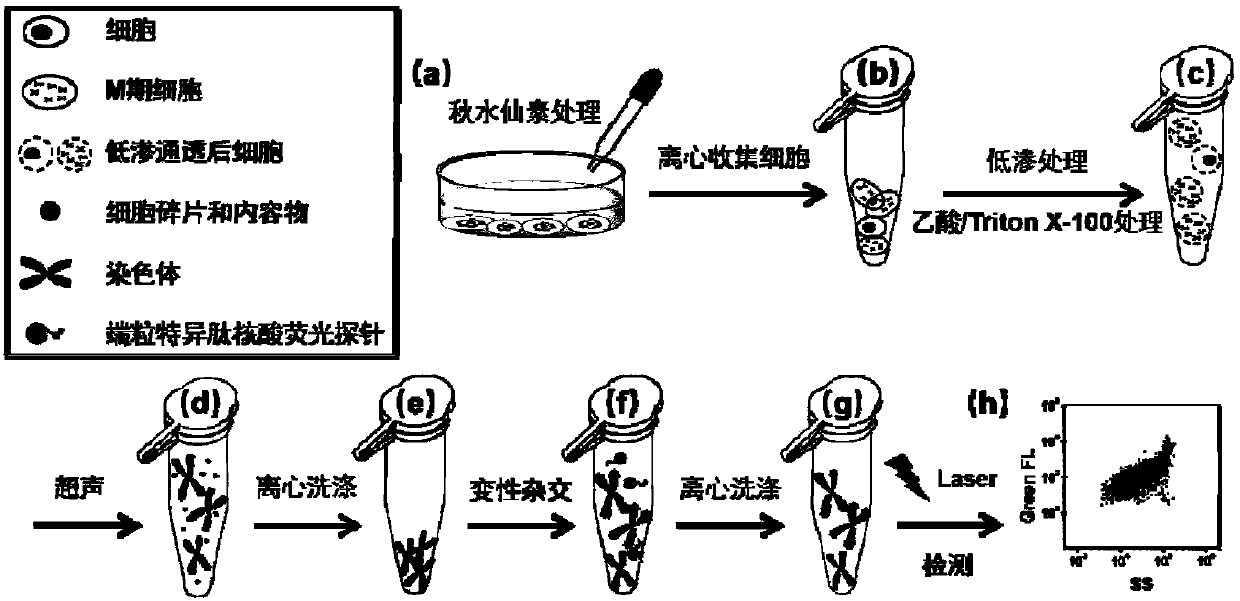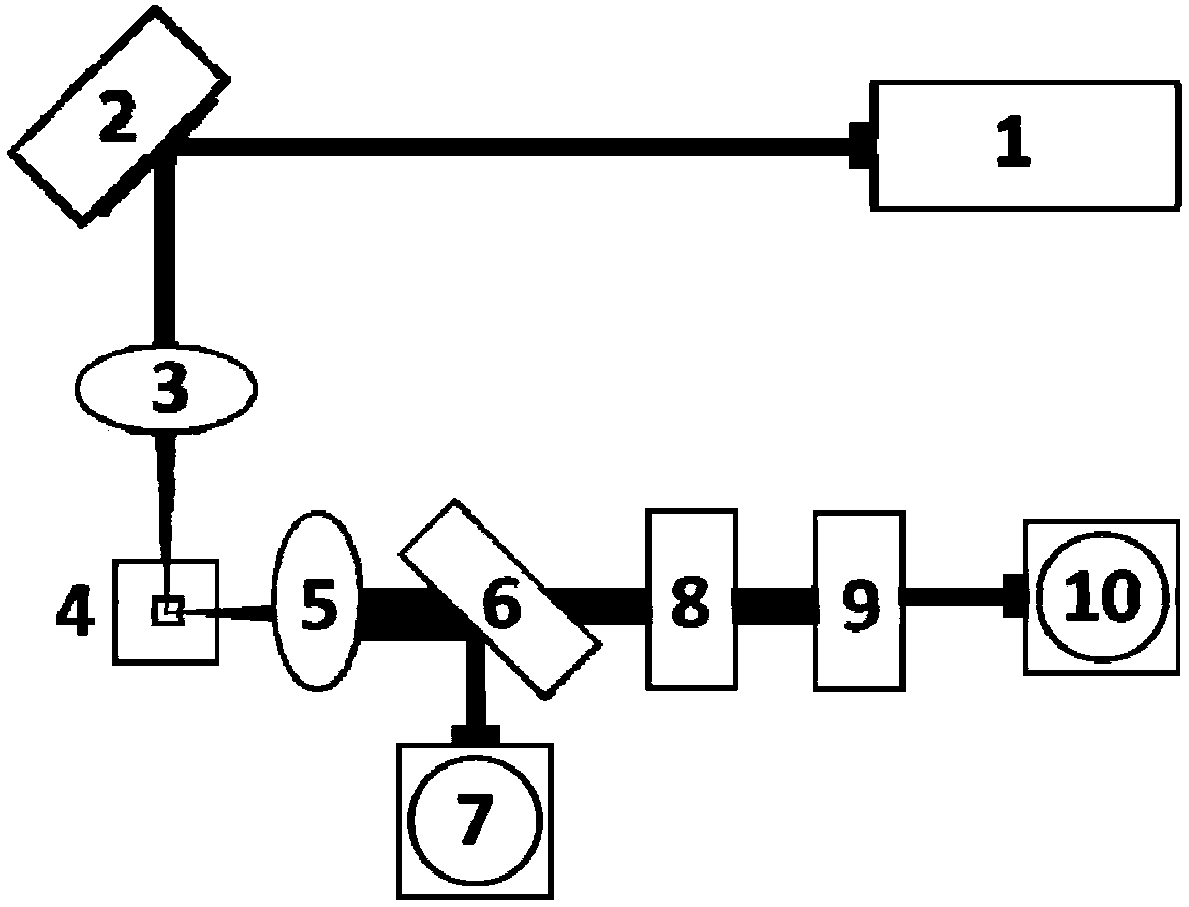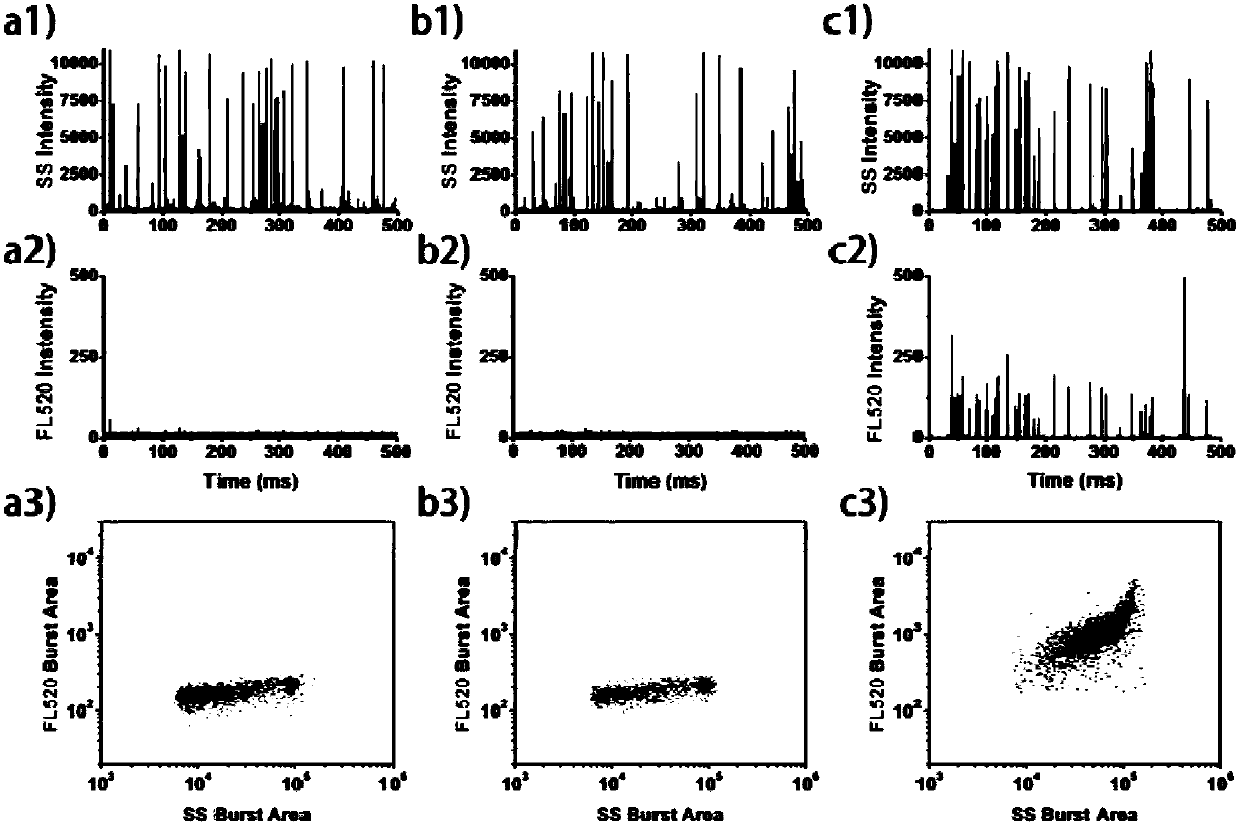Method for detecting telomere length
A technology of telomere length and detection end, which is applied in the direction of biochemical equipment and methods, microbial measurement/inspection, etc., can solve the problems of high technical requirements, large error of tumor cells, and inability to obtain short telomere ratio, and achieve high sensitivity, Effects without background distractions
- Summary
- Abstract
- Description
- Claims
- Application Information
AI Technical Summary
Problems solved by technology
Method used
Image
Examples
Embodiment 1
[0108] This example is used to illustrate the use of telomere-specific peptide nucleic acid fluorescent probe (positive probe: 5'-Alexa Fluor488-(CCCTAA) 3 -3') and peptide nucleic acid fluorescent probes with 3 base changes (negative probe: 5'-Alexa Fluor 488-(GCCTAA) 3 -3') Verify that there is no non-specific adsorption and mismatch in the probe, which will not affect the detection results. The operation flowchart reference of this embodiment figure 1 .
[0109] The laboratory cultured cell strain used in this example is HeLa, and its culture method is: place the cells in a petri dish containing 6 mL of DMEM medium for 24 hours of adherent culture, and then add autumn 1 mg / L to the petri dish. The cells were stimulated with narcissine for 8 hours.
[0110] Centrifuge and enrich 6 mL of the above-mentioned medium containing HeLa suspension cells in the M phase at a centrifugation speed of 350 rcf and a centrifugation time of 5 minutes. 4 , 5mmol / L HEPES and 3mmol / L β-mer...
Embodiment 2
[0116] This example is used to illustrate the detection of the telomere length and short telomere ratio of 5 kinds of laboratory cultured cell strains by the method provided by the present disclosure, and the average length of telomere of 5 kinds of laboratory cell strains obtained by the method provided by the present disclosure Comparison of assay results with "gold standard" telomeric end-restriction fragment analysis.
[0117] The five selected laboratory cell lines are HeLa, A549, HEK293T, SMMC-7721 and HepG2. The HEK293T is an immortal cell growing semi-adherently, and the other four are tumor cells growing adherently.
[0118] In this example, the method of laboratory preparation of chromosome samples and probe hybridization is consistent with that of Example 1. Five laboratory cell lines were cultivated using the same cell culture method as in Example 1, wherein the HeLa, HEK293T and HepG2 used DMEM medium, and the A549 and SMMC-7721 used RPMI-1640 medium.
[0119] Th...
Embodiment 3
[0125] This example is used to illustrate the detection of the telomere length and short telomere ratio of normal human peripheral blood lymphocytes by the method provided in the present disclosure.
[0126] The normal human peripheral blood sample used in this embodiment comes from a healthy adult, male, aged 25 years. The peripheral blood of normal people is collected using a vacuum blood collection tube containing heparin anticoagulant, and blood is collected from the cubital fossa vein.
[0127] The cells used in this embodiment are the lymphocytes in the peripheral blood mononuclear cells, and the peripheral blood mononuclear cells are separated using Ficoll-Paque PREMIUM (density: 1.077g / mL) separation medium (purchased from GE Company), and the peripheral blood single The extraction method of nuclear cells was carried out according to the instruction manual of Ficoll-Paque PREMIUM (density: 1.077g / mL) product of GE Company.
[0128] In this example, the method for cult...
PUM
| Property | Measurement | Unit |
|---|---|---|
| wavelength | aaaaa | aaaaa |
Abstract
Description
Claims
Application Information
 Login to View More
Login to View More - R&D
- Intellectual Property
- Life Sciences
- Materials
- Tech Scout
- Unparalleled Data Quality
- Higher Quality Content
- 60% Fewer Hallucinations
Browse by: Latest US Patents, China's latest patents, Technical Efficacy Thesaurus, Application Domain, Technology Topic, Popular Technical Reports.
© 2025 PatSnap. All rights reserved.Legal|Privacy policy|Modern Slavery Act Transparency Statement|Sitemap|About US| Contact US: help@patsnap.com



